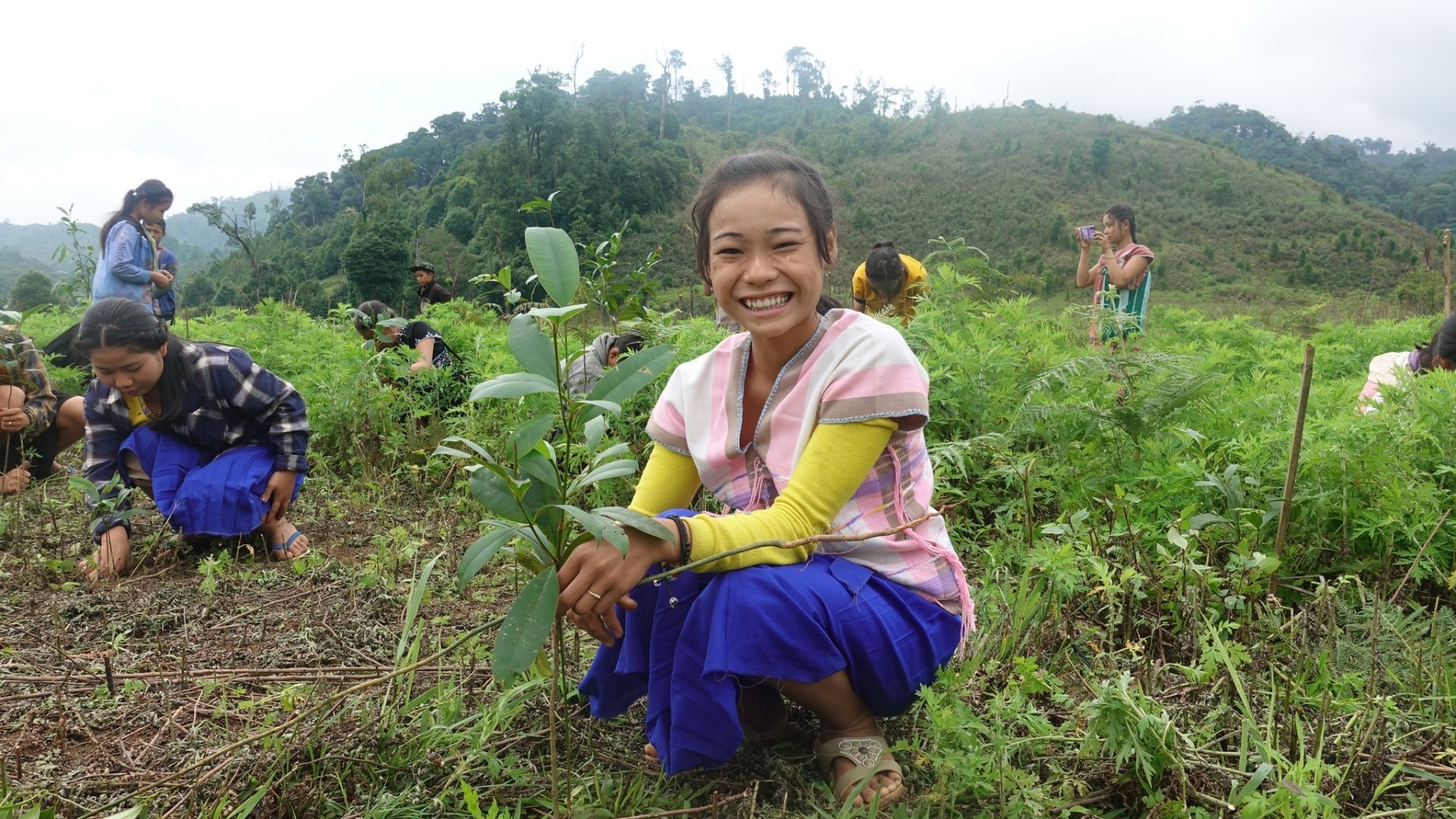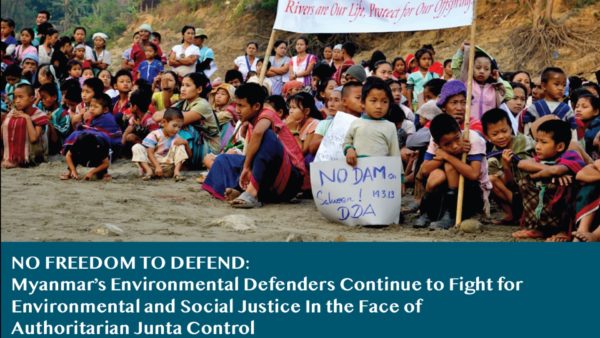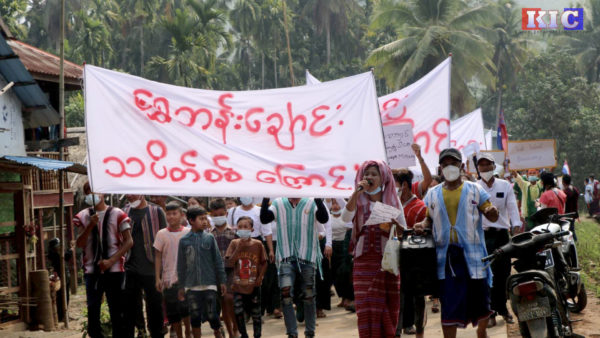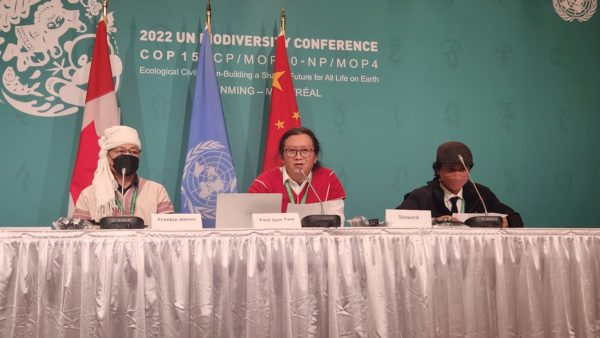Esther Wah is the Secretary of the All Burma Indigenous Peoples Alliance (ABIPA) and a Council member (Thematic representative for youth and intergenerational relations) of the ICCA Consortium. In this interview, Ms. Wah talks about how the Indigenous Karen youth are becoming a driving force in securing self-determination and revitalizing the Indigenous governance and management systems in our ancestral territories of life
First published on 09/19/2023, and last updated on 09/25/2023
Note: The article is based on an online interview with Esther Wah
Interview by Mohammad Arju, Communications Coordinator, ICCA Consortium
As Indigenous Karen youth in present-day Myanmar (Burma), we often grow up in communities that have faced various challenges, including systemic assimilation into non-Indigenous societies, military conflict, and displacement. Since our birth, we have been oppressed in many ways. But despite the sheer difficulties, many young Karen maintain a solid connection to their culture, traditions, and identity. If we look back to the last two decades, Karen Indigenous youth are ensuring the transmission of their cultural heritage to future generations.
Indigenous Karen communities have a deep spiritual connection with our land and environment. As many young Karen people are aware of threats posed by deforestation, mining, and other forms of resource extraction, we advocate for sustainable development practices and environmental protection in our ancestral territories. This resilience and attachment to our roots drive us to take on leadership roles in preserving and promoting our cultural heritage and ancestral territories. We actively shape our communities’ future through various initiatives and movements and advocate for meaningful change.
At the local level, Karen Indigenous youth have been at the forefront of community-led projects that focus on preserving traditional practices, language, ecological knowledge, and the environment. We actively participate in community governance and decision-making, ensuring our voices are heard and our perspectives are considered. We play a crucial role in ecological conservation efforts. We aim to preserve our biodiversity through sustainable resource management practices and counter the detrimental effects of extractive industries and deforestation.
For example, I have been actively engaged in advocacy and lobbying efforts. I have established alliances with other Indigenous groups and civil society organizations to amplify our demands for recognition, land rights, and autonomy. Through political participation and representation, I work with alliances towards influencing policies and legal frameworks that promote self-determination and safeguard Indigenous rights.
Karen Indigenous youth have globally leveraged international platforms and partnerships to raise awareness about our struggles and achievements. We actively participate in global Indigenous movements, sharing our experiences and learning from other Indigenous communities’ successful self-governance and management systems models. Cross-cultural exchanges over the decades have strengthened our resolve to protect our ancestral territories and promote sustainable practices. We have collaborated with international organizations and human rights bodies to draw attention to human rights abuses and promote indigenous rights recognition.
Challenges at home and abroad, and opportunities
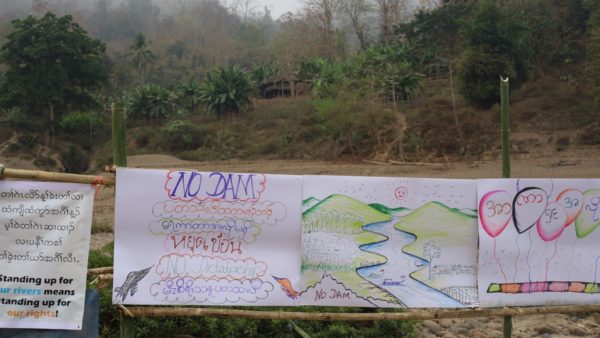
The leadership of Karen Indigenous youth faces a lot of challenges. The extent to which Indigenous youth are afforded opportunities by related institutions at all levels of the decision-making regarding climate and conservation varies widely. While there have been positive steps towards recognizing the critical role of Indigenous youth in climate and conservation actions, significant challenges and gaps still need to be addressed.
On the positive side, many Indigenous youth have been increasingly taking leadership roles in advocating for climate action and conservation efforts at local and global levels. Our traditional knowledge and deep connection to our lands and ecosystems make us valuable contributors to sustainable solutions. Our voices and perspectives are essential in shaping policies impacting our communities and the environment.
However, despite our essential role, Indigenous youth often face barriers and challenges in participating in decision-making processes.
Indigenous youth are often marginalized within their communities and excluded from decision-making spaces due to power dynamics and traditional hierarchies. Similarly, we may not have adequate representation and access to decision-making forums at the national and global levels. Then, the lack of the resources, language and cultural barriers, and lack of funding necessary to participate fully in climate and conservation discussions limits our ability to engage at international levels or have their voices heard on a broader scale.
In some cases, historical and ongoing colonial legacies contribute to the marginalization of Indigenous Peoples, including youth, and hinder our involvement in decision-making processes. Moreover, there might be instances where institutions include Indigenous youth merely symbolically or to check a box without genuinely considering our inputs or incorporating our perspectives into the decision-making process.
Related institutions must adopt more inclusive and equitable approaches to address these challenges and create meaningful opportunities for Indigenous youth in climate and conservation decision-making. It is necessary to support the Indigenous youth with resources to enable them to participate fully in decision-making processes. They are then establishing partnerships with Indigenous organizations and youth-led groups to amplify their voices and incorporate their perspectives in policy development and implementation. Therefore, empowering Indigenous youth as key stakeholders in climate and conservation discussions is a matter of justice and crucial for fostering sustainable and inclusive solutions to pressing challenges facing our planet.
Intergenerational relationships and learning must be strengthened
Indigenous youth face significant challenges in intergenerational relationships and learning about their cultures, values, and cosmovision from their elders. The main challenges include language barriers, urbanization and migration, loss of traditional practices, cultural assimilation and discrimination, technology and media influence, generation gap, and limited resources and opportunities. These obstacles can hinder the transmission of cultural knowledge and wisdom from older generations to the youth, leading to a potential disconnection from their cultural heritage.
In Myanmar, ongoing conflicts and economic factors have led some Indigenous youth to leave their traditional communities and migrate to urban areas and neighboring countries for better opportunities. This geographical separation disrupts the natural process of intergenerational knowledge sharing with elders.
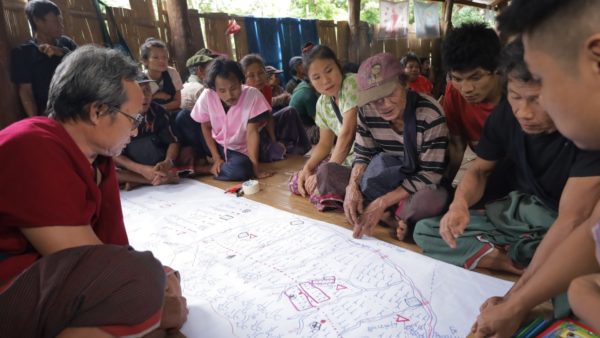
Indigenous youth in Myanmar face pressure to assimilate into the dominant Burmese culture, which dilutes their cultural identity. Additionally, historical and ongoing discrimination against Indigenous communities can cause elders to be cautious about sharing their cultural knowledge.
Myanmar’s complex political situation, including ongoing armed conflicts, has disrupted traditional lifestyles and community cohesion. This instability can affect the transmission of cultural values and practices from elders to youth. Many Indigenous communities in Myanmar lack access to quality education and cultural preservation initiatives. Limited formal education can hinder Indigenous youth’s understanding and appreciation of their cultures and heritage.
Addressing these challenges requires collaborative efforts involving elders, youth, communities, and governments to preserve and revitalize Indigenous languages, provide cultural education, support cultural exchange programs, and foster intergenerational dialogue. Initiatives to preserve and promote Indigenous languages, support cultural education, empower Indigenous youth, and create safe spaces for intergenerational knowledge sharing can help strengthen social and cultural identity among Indigenous youth while fostering a deeper connection to their heritage. By doing so, Indigenous youth can strengthen their social and cultural identity while maintaining connections with their communities’ rich cultural heritage.
Need for digital infrastructure and online connectivity.
A critical aspect of such support should be to build the necessary digital infrastructure and online connectivity. We can use the power of online platforms to showcase and celebrate our cultures, languages, and knowledge systems to a broader audience. By doing so, we can preserve and share our heritage and foster cross-cultural understanding and appreciation. Using social media, websites, and other digital platforms, we can reach a global audience and break geographical barriers. It is a powerful tool that we can use nowadays.
Furthermore, online platforms allow our Indigenous youth to shed light on our communities’ injustices and challenges. We can use these platforms to raise awareness about land rights, environmental concerns, and social inequalities.
This digital activism can create a network of solidarity and support, allowing Indigenous youth from various regions to unite, share experiences, and collectively work towards positive change. Moreover, the use of online platforms can empower Indigenous youth to challenge harmful stereotypes and misconceptions that have been perpetuated in mainstream media and society.
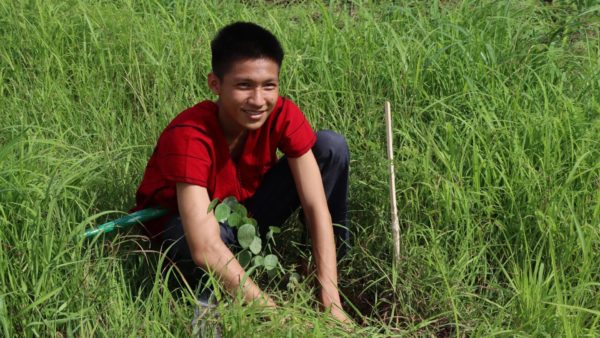
Utilizing online platforms offers Indigenous youth an invaluable opportunity to celebrate our heritage and shine a spotlight on the injustices affecting their communities. By leveraging technology and connectivity, we can amplify our voices, engage a broader audience, and foster a more inclusive and equitable future for Indigenous Peoples worldwide.
Bridges between Indigenous and non-Indigenous communities
As future custodians of the planet, Indigenous youth have a critical role in fostering positive relationships between Indigenous People and non-indigenous people for generations to come. To mobilize dialogues and promote understanding, they can raise awareness, organize cultural events, create safe spaces for dialogue, encourage collaborative projects, advocate for inclusive policies, harness media art, utilize digital platforms, build alliances, empower and lead, and preserve intergenerational knowledge.
By organizing cultural eventssuch ashosting cultural exchanges and celebrations, Indigenous youth can provide a platform for non-Indigenous people to learn and appreciate the richness of Indigenous traditions, fostering mutual respect and appreciation.
Safe spaces are needed for dialogues. Facilitating open and respectful spaces where Indigenous and non-Indigenous individuals can share their perspectives, experiences, and concerns is essential for promoting constructive conversations. Indigenous and non-Indigenous youth can work together on initiatives that benefit both communities, such as environmental conservation, language preservation, and cultural exchange programs.
About Esther Wah
Esther Wah is an Indigenous Karen woman and Secretary of All Burma Indigenous Peoples Alliance (ABIPA). She has been recently elected to the global Council of the ICCA Consortium as the thematic representative for youth and intergenerational relations. She works with ethnic communities across Myanmar on the right to protect land and forests. Her particular focus is organizing women environmental and human rights defenders. As coordinator of Conservation Alliance Tanawthari (CAT), Esther has worked with civil society organizations and Indigenous communities in the Tanintharyi Region in southern Burma for the past decade, supporting communities to defend their territories against destructive development projects and implement their grassroots models of forest conservation. She is also an Honorary member of the ICCA Consortium.
